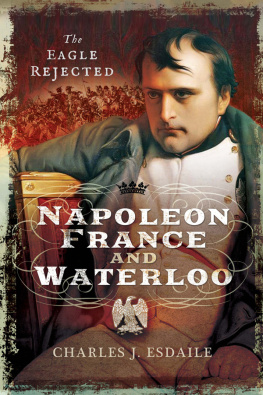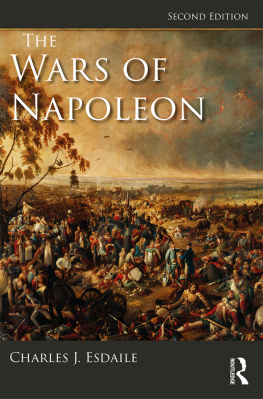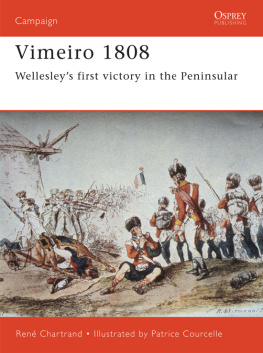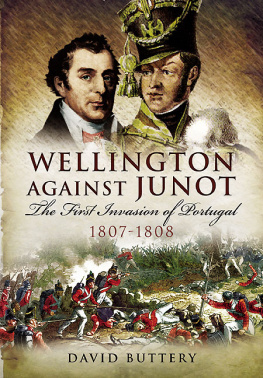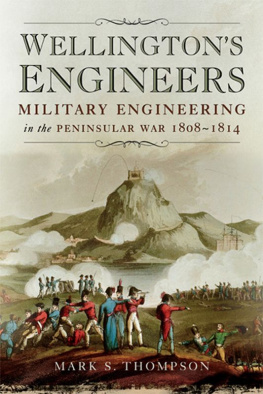Charles J. Esdaile - Peninsular eyewitnesses the experience of war in Spain and Portugal, 1808-1813
Here you can read online Charles J. Esdaile - Peninsular eyewitnesses the experience of war in Spain and Portugal, 1808-1813 full text of the book (entire story) in english for free. Download pdf and epub, get meaning, cover and reviews about this ebook. City: Barnsley, South Yorkshire, year: 2008, publisher: Pen & Sword Military, genre: Detective and thriller. Description of the work, (preface) as well as reviews are available. Best literature library LitArk.com created for fans of good reading and offers a wide selection of genres:
Romance novel
Science fiction
Adventure
Detective
Science
History
Home and family
Prose
Art
Politics
Computer
Non-fiction
Religion
Business
Children
Humor
Choose a favorite category and find really read worthwhile books. Enjoy immersion in the world of imagination, feel the emotions of the characters or learn something new for yourself, make an fascinating discovery.

- Book:Peninsular eyewitnesses the experience of war in Spain and Portugal, 1808-1813
- Author:
- Publisher:Pen & Sword Military
- Genre:
- Year:2008
- City:Barnsley, South Yorkshire
- Rating:5 / 5
- Favourites:Add to favourites
- Your mark:
- 100
- 1
- 2
- 3
- 4
- 5
Peninsular eyewitnesses the experience of war in Spain and Portugal, 1808-1813: summary, description and annotation
We offer to read an annotation, description, summary or preface (depends on what the author of the book "Peninsular eyewitnesses the experience of war in Spain and Portugal, 1808-1813" wrote himself). If you haven't found the necessary information about the book — write in the comments, we will try to find it.
Peninsular eyewitnesses the experience of war in Spain and Portugal, 1808-1813 — read online for free the complete book (whole text) full work
Below is the text of the book, divided by pages. System saving the place of the last page read, allows you to conveniently read the book "Peninsular eyewitnesses the experience of war in Spain and Portugal, 1808-1813" online for free, without having to search again every time where you left off. Put a bookmark, and you can go to the page where you finished reading at any time.
Font size:
Interval:
Bookmark:
EYEWITNESSES
EYEWITNESSES
IN SPAIN AND PORTUGAL
18081813

Pen & Sword Military
an imprint of
Pen & Sword Books Ltd
47 Church Street
Barnsley
South Yorkshire
S70 2AS
asserted by him in accordance with the Copyright, Designs and Patents Act
1988.
any form or by any means, electronic or mechanical including photocopying,
recording or by any information storage and retrieval system, without
permission from the Publisher in writing.
Pen & Sword Aviation, Pen & Sword Maritime, Pen & Sword Military,
Wharncliffe Local History, Pen & Sword Select, Pen & Sword Military Classics,
Leo Cooper, Remember When, Seaforth Publishing and Frontline Publishing.
Pen & Sword Books Limited
47 Church Street, Barnsley, South Yorkshire, S70 2AS, England
E-mail: enquiries@pen-and-sword.co.uk
Website: www.pen-and-sword.co.uk
Font size:
Interval:
Bookmark:
Similar books «Peninsular eyewitnesses the experience of war in Spain and Portugal, 1808-1813»
Look at similar books to Peninsular eyewitnesses the experience of war in Spain and Portugal, 1808-1813. We have selected literature similar in name and meaning in the hope of providing readers with more options to find new, interesting, not yet read works.
Discussion, reviews of the book Peninsular eyewitnesses the experience of war in Spain and Portugal, 1808-1813 and just readers' own opinions. Leave your comments, write what you think about the work, its meaning or the main characters. Specify what exactly you liked and what you didn't like, and why you think so.

